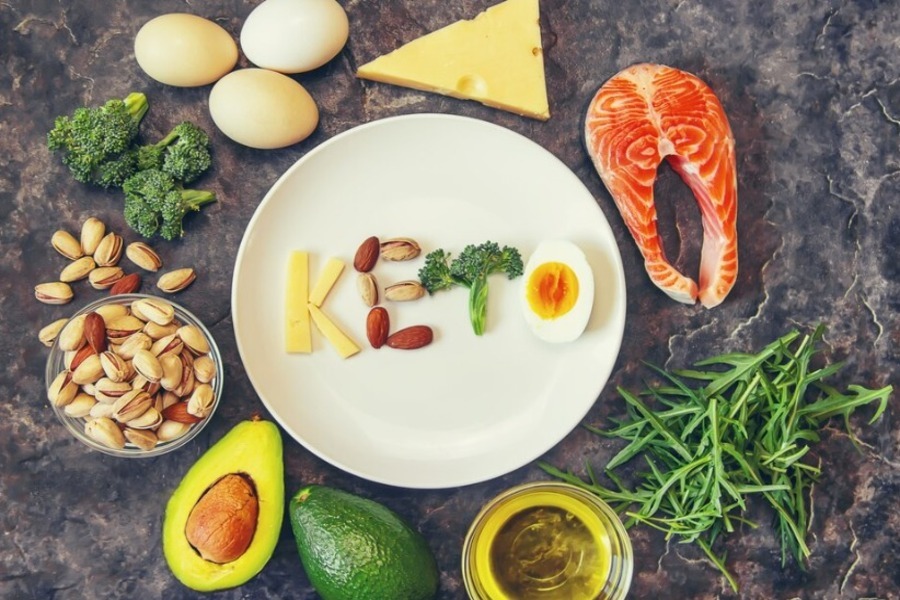Power Foods for Better Health
You likely know that maintaining a balanced diet is one of the most effective ways to take care of your body. Eating nutritious foods can significantly lower your risk of developing serious health conditions such as heart disease, type 2 diabetes, and different types of cancer.
But choosing the right foods isn’t always simple. Popular eating styles today ranging from high-fat, ultra-low-carb keto to completely plant-based vegan can be vastly different. On top of that, nutrition research often presents mixed messages, making it even harder to know what to believe.
Luckily, most nutrition experts agree that certain kinds of foods offer exceptional health benefits. And within those categories, a few truly stand out. These are often referred to as power foods—nutrient-rich choices that can make a big difference in your overall well-being.
you probably think of fiber as the thing that keeps your digestion on track—and you’re right—but it actually does much more than that.
Fiber is a type of carbohydrate that your body can not break down. It comes in two types: soluble and insoluble. Soluble fiber forms a gel-like substance in the gut, which helps lower blood sugar and cholesterol levels. Insoluble fiber doesn’t dissolve and instead helps move food through your digestive system, promoting regular bowel movements.
Most people need around 20 to 30 grams of fiber daily, yet many fall short. Luckily, fiber is easy to find in everyday foods like fruits, vegetables, and legumes. Adding more of these to your meals can help you meet your daily fiber goals with ease.
1 medium pear – provides about 5.5 grams of fiber
1 cup cooked pinto beans – packs in 15.4 grams of fiber
1 baked potato (with skin) – contains roughly 4 grams of fiber
1 cup shredded wheat cereal (spoon-size) – delivers around 6 grams of fiber
1 cup cooked quinoa – offers approximately 5 grams of fiber
Antioxidants: Powerhouses for Your Health
Antioxidants are nutrients that may help protect your body from certain diseases. They work by neutralizing free radicals—unstable molecules that can cause cell damage.
Common antioxidants like vitamin C, vitamin E, and beta-carotene are most beneficial when sourced from whole foods. This is because these foods provide not only antioxidants but also other essential nutrients that work in synergy. Research doesn’t strongly support the idea that antioxidant supplements offer the same health benefits as natural food sources.
The best sources of antioxidants include a variety of fruits, vegetables, whole grains, and nuts. Here are some foods packed with different types of antioxidants:
- Bell peppers
- Berries
- Broccoli
- Leafy greens (like turnip greens and collard greens)
- Peanuts
- Tomatoes
Smart Protein Choices for a Healthier You
High-protein diets are often linked to weight management because protein helps you stay fuller longer. However, relying heavily on red meat and full-fat dairy for protein can increase your risk of heart disease.
For a heart-healthy approach, opt for lean animal sources like fish, skinless poultry, and low-fat dairy. Even better, incorporate more plant-based proteins—they’re packed with fiber, antioxidants, and essential nutrients, and they support long-term health.
Great sources of plant-based protein include:
- Lentils
- All varieties of beans (like black beans, kidney beans, and chickpeas)
- Soy products (edamame, tofu, tempeh)
- Nuts such as almonds and walnuts
- Seeds like sunflower or pumpkin seeds
- Whole grains like quinoa
Foods That Strengthen Your Immune System
Your immune system protects you from illness, but a poor diet can weaken its defenses. Specific vitamins and minerals are especially important for keeping it strong.
Key immune-supporting nutrients include:
- Vitamins A, C, D, and E
- B vitamins (B2, B6, B12, and folate)
- Iron, zinc, and selenium
People who rely on fast food or have limited access to fresh produce may not get enough of these essential nutrients. Likewise, those following vegetarian or vegan diets may need to pay special attention to vitamin B12 intake, often found in fortified foods or supplements.
Add these immune-boosting foods to your meals:
Vitamin A: Carrots, sweet potatoes
Vitamin B2 (Riboflavin): Tofu, lean meats like skirt steak
Vitamin B6: Chickpeas, salmon
Vitamin B12: Dairy products, fortified cereals
Folate (B9): Avocados, spinach
Vitamin C: Brussels sprouts, tomato juice
Vitamin D: Eggs, mushrooms
Vitamin E: Broccoli, natural peanut butter
Iron: Beans, poultry
Selenium: Seafood, enriched grains
Zinc: Nuts, beef



